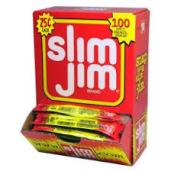Bike Gangs Show Sensitive Side With "Baiku"
by Con Chapman
MAYNARD, Mass. It's Wednesday night at the Sitting Duck Pub, a biker bar in this Massachusetts town of 10,000. A reporter asks Darlene Rivers, a thirty-something woman in a tube top, whether anyone is sitting on the empty bar stool next to her. “Not right now,” she says after blowing cigarette smoke out of the side of her mouth, “but if my old man comes in and sees you sitting there, you'd better have good dental insurance.”
Darlene is here because of her self-proclaimed “artistic” side, which she says finds expression in the many Harley-Davidson tattoos on her upper arms and her love of poetry. “I'm here every week for the verse,” she says as she flips her long hair back over her shoulder. “‘Oh what a tangled web we weave' and all that jazz.”
“If you even so much as touch my hog/I'll come to your house and poison your dog.”
As she takes a sip of her beer, Gene Dominici, the first performer of the evening, takes the stage to read a sampling of his biker poetry, a gas, chrome and rubber genre of folk poetry that has become popular as a result of the publication of the anthology “Rubber Side Down,” a collection of poems written by bikers.
Domenici leads with a “baiku,” a variation on haiku, the Japanese short-poem format.
Full tank, old lady
on the saddle. I turn, she
says “Let's go, Pig Pen.”
A murmur of appreciation rises from the crowd. “Sweet,” says Oran “Big Dude” Swartski, who has ridden his 2006 Indian Chief Roadmaster over 150 miles to be here tonight. “Give the man a Slim Jim,” Swartski calls out to the bartender, who tosses one of the convenient beef jerky sticks that many bikers subsist on over long road trips onto the stage.

Next up is Floyd “Hard Times” Daniels, whose Harley-Davidson Low Rider FXRS announces his approach from several blocks off whenever he has a new poem ready to read to the Sitting Duck aficionados. He takes a swig of his Pabst Blue Ribbon beer, clears his throat, and adopts a pastoral tone that reveals the beauty of the world as seen through the bug-splattered goggles of a biker:
Some guys ride hills up and down,
Then stop to terrorize small towns.
Me, I'd rather have my fun
On a summer day for a poker run.
“That was so—freaking—beautiful,” Darlene says, and it is clear that she has been touched by the emotions that Daniels has so skillfully evoked by the image of a biker with his girlfriend picking up the winning hand at a motorcycle club's fund-raising event.

“I promise I won't call your bike a scooter/if you won't refer to my breasts as hooters.”
Daniels graciously cedes the microphone to Jim “B.S.” deJong, a symbolist whose bike of choice is a Kawasaki ZX-6R Ninja.

deJong is a devotee of Samuel Taylor Coleridge, and like the author of “Kubla Khan,” he's not above a little chemical stimulation to get his creative rivers flowing:
Whose hog this is, I think I know
His straightpipes have that healthy glow.
He will not see me stopping here
To deal a little high-grade blow.
Last, but certainly not least, is last week's winning poet Carson “Mudflap” Poquette, who honed his literary skills while incarcerated for aggravated assault in a medium-security prison. His style is edgy, fueled by rage and the ravages of social diseases he's picked up over a long life of drunken one-night stands.
When down I bring my pool cue (maple)
Upon a roadhouse bumper table.
Be sure upon the felt of green
Your head ain't sitting, or your spleen.
The crowd is quiet for a moment, then the sound of applause is heard, soft at first, then building to a crescendo as the audience absorbs the delicate tracery of Poquette's four-line, a-a-b-b rhyme scheme over the subtext of a not-so-thinly veiled threat.
“You've got my vote,” yells Dominici as he heads for the exit.
“Mine too,” calls out Daniels, who quickly settles up with the bartender.
The only poet to stand his ground, however unsteadily, is deJong, who rises and staggers to the stage with menace on his face. “You call yourself a poet,” he fairly spits out.
”You got a problem with that?” Poquette snarls back at him.
”Yeah,” de Jong says. “You put a period at the end of the second line—it should have been a comma.”
Available in print and Kindle format on amazon.com as part of the collection “poetry is kind of important.”
|
3
favs |
1427 views
4 comments |
843 words
All rights reserved. |
Author's Note
The author has not attached a note to this story.
Other stories by Con Chapman
Tags
This story has no tags.
*
Glad I be here in da Mickey D's or I be kicked out da library for laffing at dese. *
entirely plausible.
Based on fact, it's kind of a modern day variant of cowboy poetry.